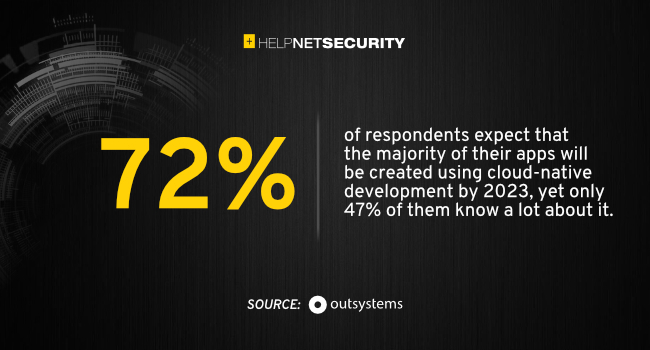Are businesses ready to implement cloud-native development?
OutSystems released findings from a global survey of IT leaders and developers gauging the benefits and challenges of cloud-native development, with results highlighting stark contrasts between expectations and readiness.

The report reveals that while analysts expect a sharp rise in cloud-native development globally, 53% of respondents still don’t know much about it.
“Cloud-native technology unlocks new possibilities for application speed, reliability and massive scale – if it’s done right,” said Patrick Jean, CTO of OutSystems. “Many businesses are showing a delta between their desired future state and their current knowledge and expertise.
“Our research reveals that most businesses don’t know enough about cloud-native’s challenges and don’t have the staff to successfully implement it. The answer lies in high-performance low-code tools that can help speed and simplify the path forward and dramatically improve the way they build and manage apps for the future.”
Based on the global survey of more than 500 IT leaders and developers across industries, including cloud-native leaders (those who currently use cloud-native) and laggards (those who do not), the report pinpoints the current state of the technology, in terms of its adoption, challenges and opportunities. Key findings include:
- Knowledge gap – While 72% of respondents expect that the majority of their apps will be created using cloud-native development by 2023, only 47% of them know a lot about it.
- Unexpected challenges – Cloud-native leaders say that selecting the right tools/platforms (52%), and architectural complexity (51%) are the top two challenges of cloud-native development, whereas cloud-native laggards rank these significantly lower.
- Talent need – Both cloud-native leaders and laggards agree that engineering team growth is a necessity – and a struggle. Respondents share the need for talent across 13 different roles, from back-end, full-stack, and mobile developers to enterprise architects and designers, with cloud architects standing out as a critical role to fill.
- Low-code advantage – Cloud-native leaders see low-code platforms as winning partners in their cloud-native journeys, with 60% saying low-code platforms are “very good” or “excellent” tools for cloud-native implementation. More than seven in ten (72%) cloud-native leaders work with low-code platforms already.